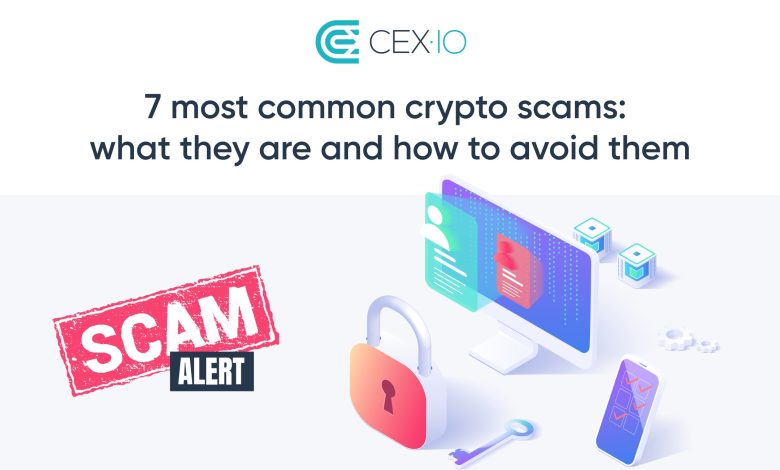How to Avoid Common Crypto Scams

- Understanding the most common crypto scams
- Tips for identifying red flags in crypto investments
- Protecting your assets from phishing attacks
- How to verify the legitimacy of a crypto project
- Avoiding Ponzi schemes and pyramid schemes in the crypto space
- Educating yourself on the latest scam tactics in the crypto industry
Understanding the most common crypto scams
When it comes to crypto scams, it’s essential to be aware of the most common types to protect yourself and your investments. Here are some of the prevalent scams to watch out for:
- Phishing: This scam involves fraudulent emails or websites that mimic legitimate crypto exchanges or wallets to steal your personal information or funds.
- Ponzi schemes: These scams promise high returns on investments but use new investors’ money to pay off earlier investors, eventually collapsing and leaving many people with losses.
- Impersonation: Scammers may impersonate well-known figures in the crypto industry on social media or messaging platforms to trick people into sending them funds.
- Pump and dump: This scheme involves artificially inflating the price of a cryptocurrency through false information, then selling off quickly to make a profit, leaving others with losses.
- Malware: Hackers use malicious software to gain access to your devices and steal your crypto assets without your knowledge.
By understanding these common crypto scams, you can be better prepared to identify and avoid them, protecting yourself and your investments in the volatile world of cryptocurrency.
Tips for identifying red flags in crypto investments
When considering crypto investments, it is crucial to be aware of red flags that may indicate a potential scam. Here are some tips to help you identify and avoid common crypto scams:
- Check the credentials of the team behind the project. Look for experienced professionals with a track record of success in the industry.
- Be wary of promises of guaranteed returns or high profits with little to no risk. Investments always carry a certain level of risk.
- Avoid projects with poorly written whitepapers or lack of transparency in their business model. Legitimate crypto projects should be clear and transparent in their communication.
- Watch out for projects that pressure you to invest quickly or urgently. Scammers often use time-sensitive offers to manipulate investors.
- Research the project thoroughly and seek independent reviews from trusted sources. Feedback from other investors can help you evaluate the legitimacy of the investment.
By staying informed and vigilant, you can protect yourself from falling victim to crypto scams. Remember, if something seems too good to be true, it probably is.
Protecting your assets from phishing attacks
Protecting your assets from phishing attacks is crucial in the world of cryptocurrency. Phishing scams are a common tactic used by cybercriminals to steal sensitive information such as login credentials and private keys. To safeguard your investments, follow these tips:
- Be cautious of unsolicited emails or messages asking for personal information.
- Double-check the URL of websites before entering any login details.
- Use two-factor authentication whenever possible to add an extra layer of security.
- Keep your software and antivirus programs up to date to protect against malware.
- Avoid clicking on suspicious links or downloading attachments from unknown sources.
By staying vigilant and taking proactive measures, you can minimize the risk of falling victim to phishing attacks and keep your crypto assets safe.
How to verify the legitimacy of a crypto project
When considering investing in a crypto project, it is crucial to verify its legitimacy to avoid falling victim to scams. Here are some steps you can take to ensure the project is trustworthy:
- Research the team behind the project: Look into the backgrounds of the team members to see if they have relevant experience in the crypto industry.
- Check the project’s whitepaper: A detailed and well-written whitepaper is a good sign that the project is legitimate. Make sure it outlines the project’s goals, technology, and roadmap.
- Look for a working product or prototype: A legitimate crypto project should have a working product or at least a prototype to demonstrate their capabilities.
- Check for community engagement: Legitimate projects often have an active community of supporters who are engaged in discussions about the project.
- Verify partnerships and collaborations: If a project claims to have partnerships with other companies, make sure to verify these claims with the supposed partners.
By following these steps and conducting thorough research, you can better assess the legitimacy of a crypto project and make informed investment decisions. Remember, it’s always better to be safe than sorry when it comes to investing in the crypto space.
Avoiding Ponzi schemes and pyramid schemes in the crypto space
When navigating the crypto space, it is crucial to be aware of common scams such as Ponzi schemes and pyramid schemes. These fraudulent schemes often promise high returns with little to no risk, luring in unsuspecting investors. To avoid falling victim to these scams, it is essential to be vigilant and educate yourself on how to spot them.
One way to avoid Ponzi schemes and pyramid schemes in the crypto space is to conduct thorough research before investing in any opportunity. Look for red flags such as guaranteed returns, complex investment structures, and a lack of transparency. Additionally, be wary of schemes that require you to recruit new investors to earn profits, as this is a common tactic used in pyramid schemes.
Another important step in avoiding these scams is to only invest in projects that have a solid track record and are backed by reputable individuals or organizations. Be cautious of any investment opportunity that seems too good to be true, as it likely is. Remember, if an investment opportunity promises high returns with little to no risk, it is probably a scam.
Educating yourself on the latest scam tactics in the crypto industry
It is crucial to stay informed about the latest scam tactics in the crypto industry to protect your investments and personal information. Scammers are constantly evolving their methods to deceive unsuspecting individuals, so educating yourself on these tactics is essential.
One common scam tactic is phishing, where scammers send emails or messages pretending to be from legitimate crypto companies to trick you into revealing your private keys or passwords. Another tactic is fake ICOs, where scammers create fraudulent initial coin offerings to steal investors’ money.
To avoid falling victim to these scams, it is important to research and stay updated on the latest trends in the crypto industry. Be cautious of unsolicited messages or emails asking for personal information, and always verify the legitimacy of any crypto project before investing.



